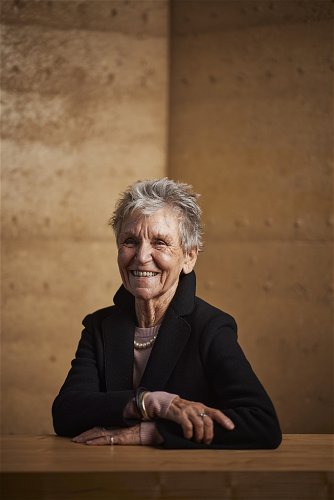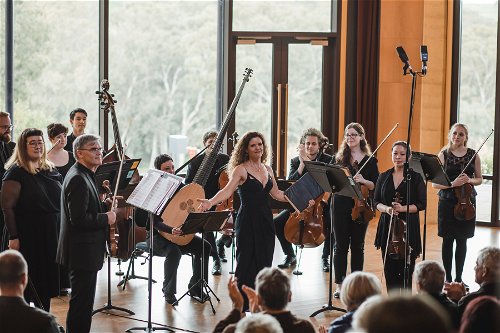
'A COMPOSER'S SINGER': AN INTERVIEW WITH KEVIN MARCH
BY RACHEL BRUERVILLE
Award-winning composer Kevin March and acclaimed soprano/poet Judith Dodsworth were in residence at UKARIA from Thursday 18–Thursday 25 January, developing The Unknown Swimmer – a multi-media song cycle/theatrical work for soprano/speaker, chamber ensemble and digital environments, based on selections from Dodsworth’s anthology of the same name. The Unknown Swimmer depicts Dodsworth’s own profound transformation as she ventures into cold-water swimming to recover from a serious mental health crisis experienced during COVID restrictions and reconnect to her creativity as a response to adversity. On Monday 22 January, midway into their residency, our Communications Coordinator Rachel Bruerville spoke to Kevin about how he met Judith Dodsworth; working collaboratively with performers; and what makes The Unknown Swimmer a uniquely Australian work.
Thanks so much, Kevin, for making the time to chat with us. Could you give us an overview of your work as a composer, and what led you to call Australia home?
I’m so happy to be here in Australia! This July, I will have lived here for twenty years. My partner and I met at the University of Michigan when we were both doing our doctorates – mine in Composition and his in Classics. He was offered a job at the University of Melbourne and moved over here first, and I finished my doctorate and then moved to Melbourne about three years later, and we both became citizens. I had to completely start from scratch in building a network here, and all of my first musical connections came from performing. I joined the Astra Chamber Music Society, and sung in the Astra Choir under John McCaughey for several years – they were one of the first ensembles to perform some of my music.
I’m not so much a performer anymore. After I had been here for a little while, I started teaching – first at the Victorian College of the Arts, then at the Conservatorium of Music. So I was composing, teaching, and performing, and I didn’t have quite enough room on my plate to do all of that, and do it well! I write a lot of vocal music. Probably half of the music I write is vocal – mostly solo, some ensemble, and I love theatre, and writing for the musically theatrical stage.
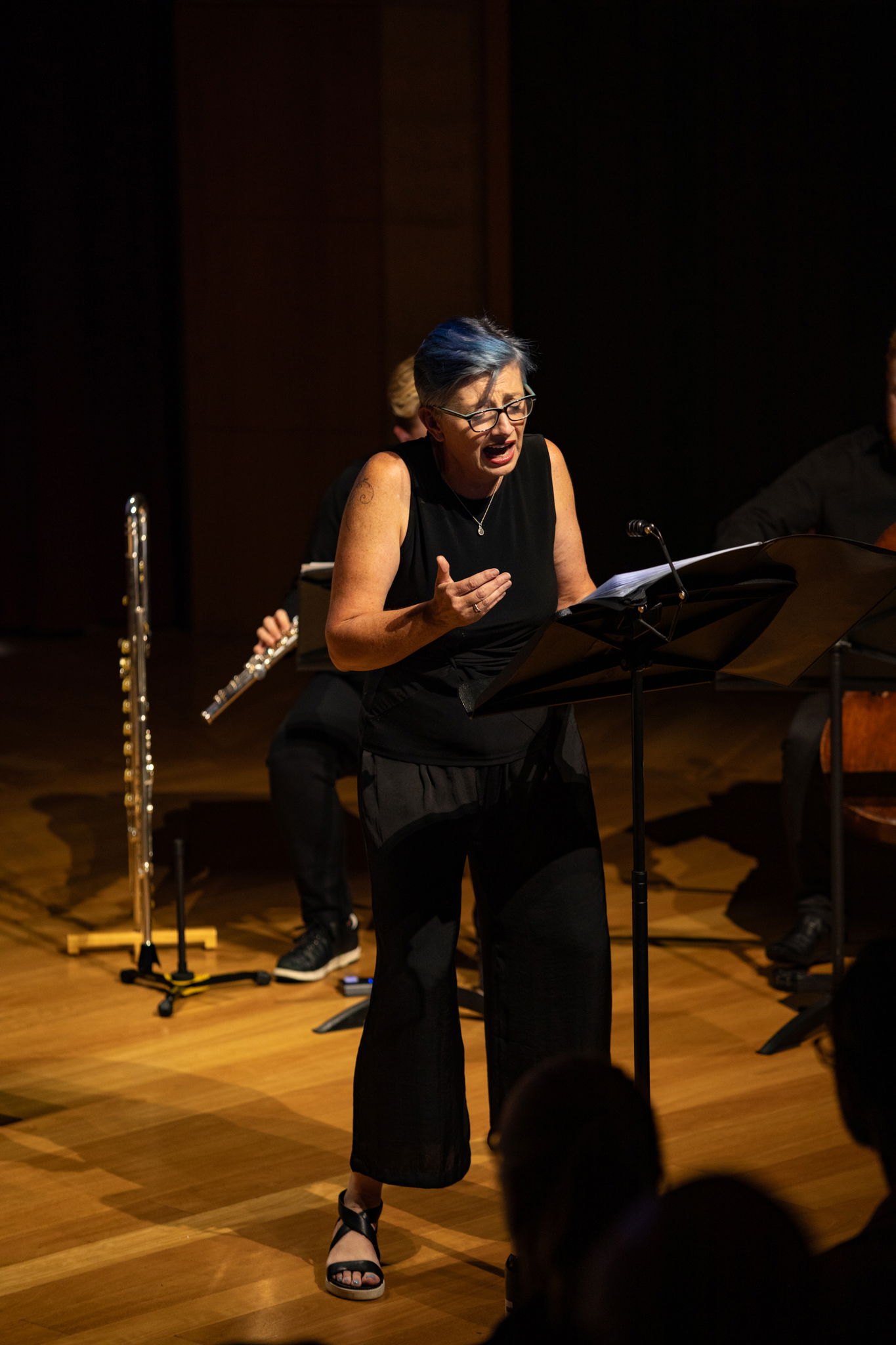
I first met Judith over a decade ago, when Victorian Opera and Chamber Made had combined forces to do an opera workshop showcase. I selected scenes from a chamber opera I was working on called Razing Hypatia, and Judith was also participating in the workshop, but she was singing someone else’s work! We didn’t get to choose our performers for the workshop – the organisers did all the casting – but Judith and I had a long conversation afterwards, and she’d really liked what I had written.
The next time we crossed paths, my partner and I were presenting a joint paper at a conference in Melbourne about Sappho, and I had written a song cycle called Mythweaver. Judith happened to also be at that Sappho conference, again singing someone else’s work… we had a repeat conversation, and kept in touch this time.
A few years later, I got a chance to do a concert of my music for the Melbourne Metropolis New Music Festival, where Stefan Cassomenos (piano) and Judith performed my work, including Mythweaver. So, Judith and I have collaborated before in the sense that she (finally!) performed my work, but we’ve never created something new together until now. Judith is really a ‘composer’s singer’ – you don’t have to tell her how every little thing goes. She’s very responsive to how composers think and what they might want.
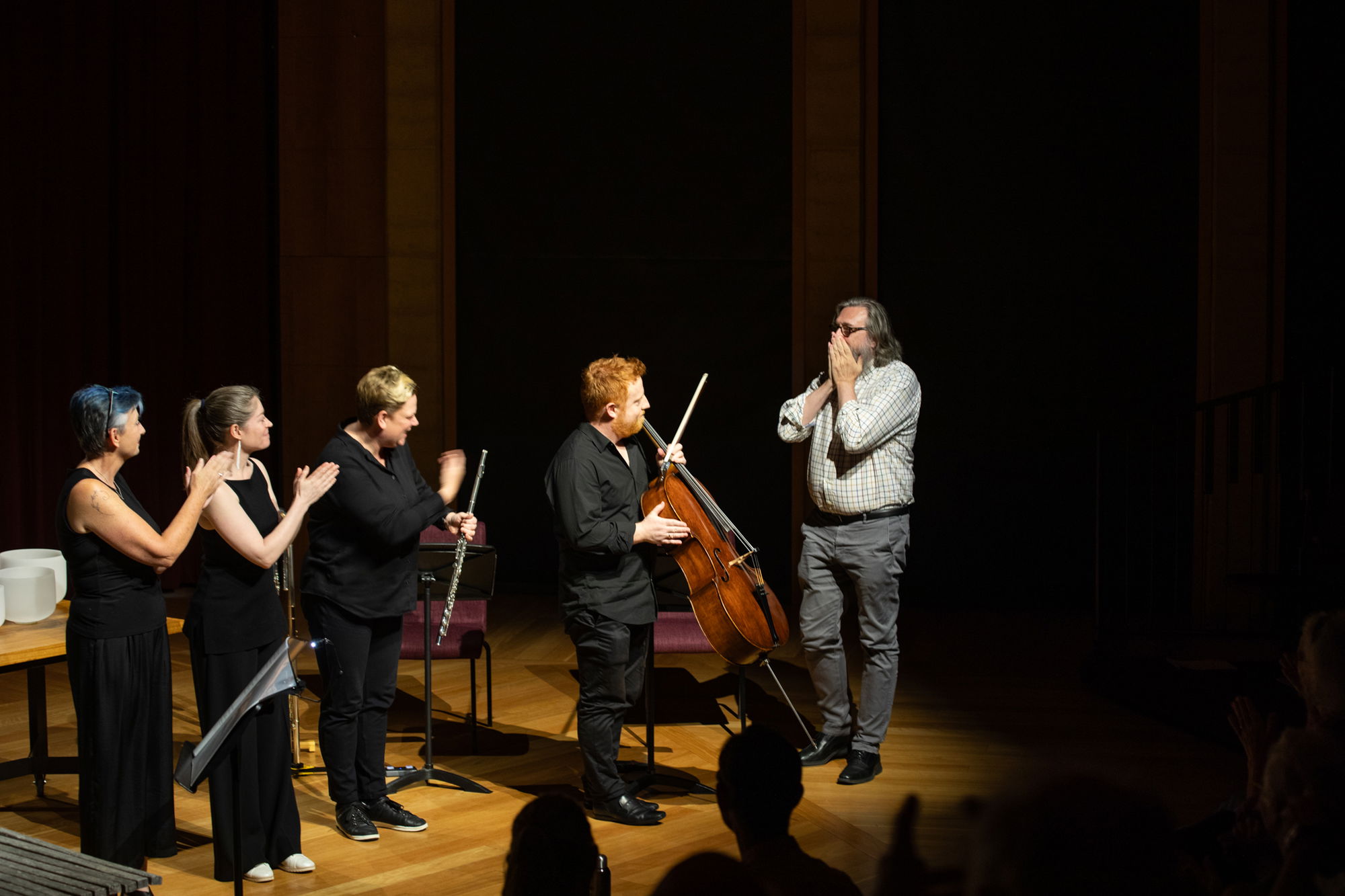
What qualities do you think are the most important for creative collaborators to have, coming into a project in development like this?
Everyone involved just really has to be easy to work with! You need to be able to ask questions: what if we do this, what if we do that, what if we cut this part out. You can’t be precious – you need to be open and flexible. Everything you do has to be in service to this piece of drama that you put forth. And of course, it may be the case that one person thinks their idea is better than the other, but you just have to work through that.
And would you say these sorts of decisions are made by consensus, or are you as the composer ‘in charge’, or is it Judith as the poet who has the final say? I imagine it varies!
This piece has been really different to any other piece that I’ve worked on, in that it does seem like the whole creative team is in charge all at once… they’re all really brilliant at what they do. As a composer, I like to give the musicians great leeway to suggest things that might work better than what I’ve written down, with respect to their expertise. I think as a composer you have to do that – you have to listen to your creative team, and you have to listen to the performers, because 99% of the time, they’re right!
It’s been really interesting to see how we work together. Here’s one example of what I’m trying to get across: Justin had finished a video, and we were playing it with the audio we’d recorded to see how it was matching up, and I had made a note about something. I said, ‘What if this changes when the singer does this?’ And Justin said, ‘Yes, I was wondering that myself, what’s the time stamp of that?’ I gave it to him, two minutes and three seconds, and he said, ‘That’s exactly what I wrote down!’ So there’s this single-mindedness amongst the team that’s been really brilliant.
Is this the first time that you and the team have spent an extended period of time working together?
We have had a few creative team meetings over Zoom before we got to
this point, but it’s definitely not the same. This real-time, live
collaboration is so much deeper, and that’s why residencies like this
are so great, because you have the space in your schedule to actually
think and talk about fine details. Residencies give you the space and
time to think collectively.
Another interesting thing that happens, I think, is that you get into
this ‘work-life flow’, where everything you are doing feels like one
process. Your work time doesn’t feel interrupted by meals, or
conversation, and your life isn’t interrupted by the work… it all seems
like part of the same flow, and I’ve only ever felt this when I’ve been
in an artists’ residency situation like this.
As compared to working on a full-length opera with a librettist, where you are creating words and music alongside one another, are you making changes to Judith’s existing poetry this week as well, or is the poetry set in this case, and the music needs to fit? How do these processes differ?
For this residency, we pretty much have a finished set of texts that I’ve been working with. Before we got here, Judith made a few tweaks to the poems, to get them in a place she felt was a little more polished, and then she handed them over to me, but there are also quite a few poems in the book that are not in this piece. We both went through all of them independently – identifying which poems were the best candidates for setting to music, and the most powerful to convey the narrative. Then when we met up together to discuss that, we almost had the same list – only a few differences to work out, and then we started whittling it down from there. So basically, by the time I started writing music, the text was confirmed.
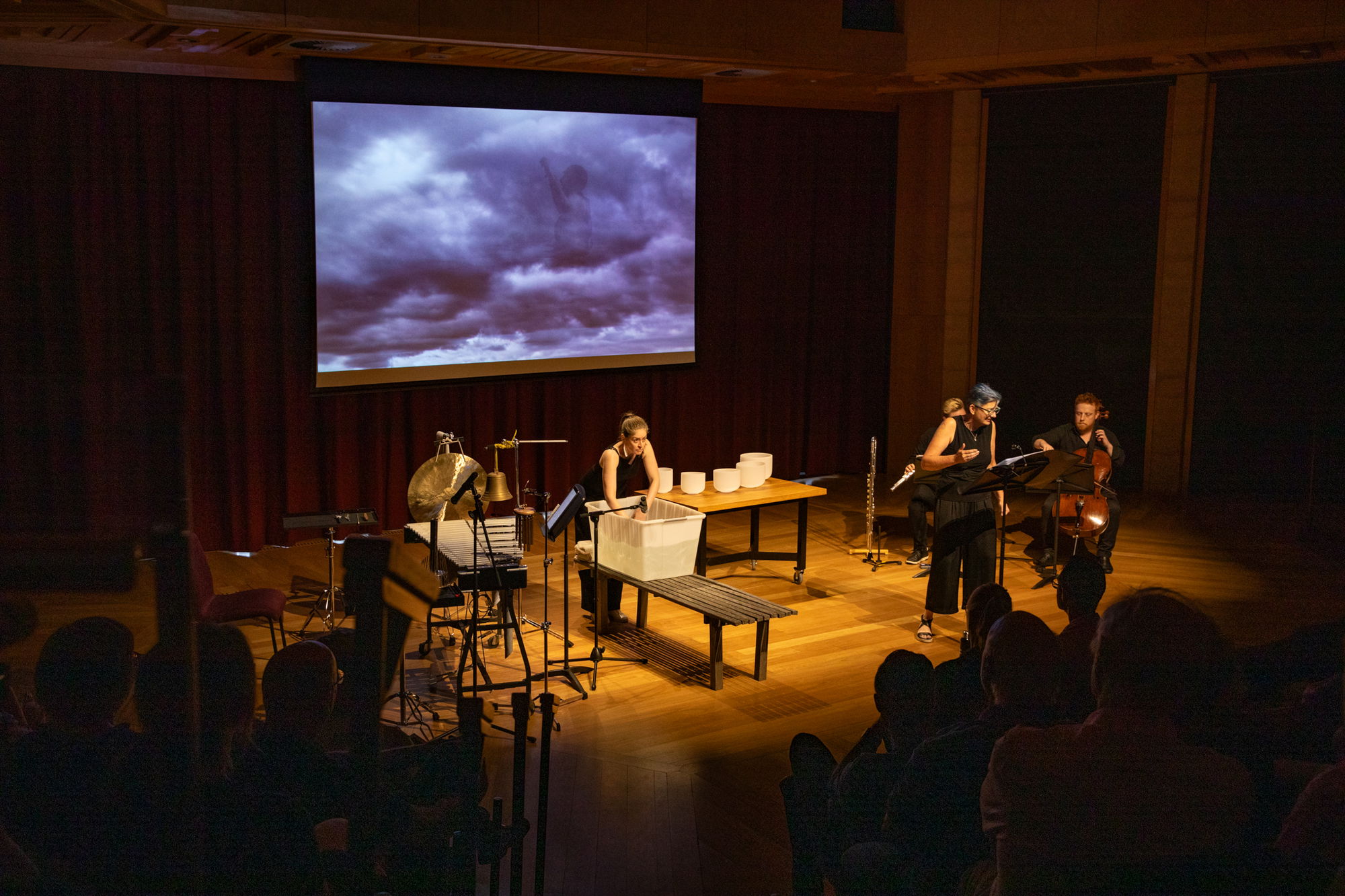
One final question – what do you think makes this piece uniquely Australian?
I think this is the most powerfully and overtly Australian piece that I’ve made – an Australian story, told by Australians, in an Australian setting. 87% of our population lives within 50kms of the ocean, which is a really remarkable statistic. Melbourne was also a unique place to be during the lockdowns, but the piece is more about the question of what we are doing now, rather than what we were doing then or what has come from that time.
I’ve talked to so many people who are just different now. This story of Judith’s – of doing this extreme thing, the cold-water swimming… we may not all have done something as extreme as that, but we all certainly did something as extreme as living under pandemic restrictions. Regardless of whether you thought they were justified or not, we were living under them, and from a certain point of view, we’ve all been through extreme experiences. Now we’re coming out of them, and we’re thinking, okay… what do things mean now? What am I about now? What am I doing now?
So many people have quite a different outlook on their careers, and their lives… even audiences in Melbourne – when restrictions were first easing, people were just bananas for opera! At the first few productions I went to see after the lockdowns, it was like being at a rock concert – the applause, the enthusiasm – and then there was kind of a big dip. People were cautious, and it’s still really unpredictable. So, in a sense, people are still going through what Judith is going through in this piece. They’re still looking for a place to call home… they’re asking, is this really where I fit? It’s quite a timely piece in that way, and I think people in a lot of different places went through extreme times, not just in Australia – maybe we’ll get to do this piece overseas one day and reach lots of different audiences.
This residency was supported by a partnership between UKARIA and Creative Australia.




 012.jpg?class=grid1)
